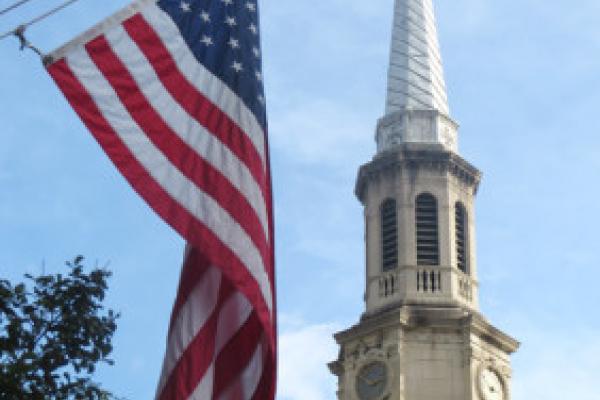A smart professor in Massachusetts noticed recently that religion’s decline in America coincided with the rise of the Internet.
He theorized that the two may be connected. Headline: “Is the Internet bad for religion?”
It’s utter nonsense, of course. The decline of mainline churches began in 1965, not in the 1990s when the Internet became commercially available. It would be more accurate, from a timing standpoint, to say that the American League’s designated hitter rule (1973) caused religion’s decline. Or maybe the “British invasion” in rock ‘n’ roll (1964).
Or maybe the impact of Brown v. Board (1957), which launched a wave of white-flight suburbs and crippled two rings of inner-city and neighborhood churches. Or maybe it was suburban shopping malls (1960s), which gave people something else to do on Sunday morning, and repeal of the so-called “blue laws” that once had guaranteed Sunday morning to churches.
Q: Is the Internet killing religion?
A: No. Religion in the U.S. went into decline 30 years before the Internet became commercially available.
Q: Is anything killing religion?
A: Not directly or deliberately. Cultures change; people’s lives, needs, and expectations change. Therefore, institutions must change. Religious institutions were slow to recognize fundamental changes in their contexts and constituencies. Many fought change, in fact, as if change were unholy. By now, many religious institutions have adapted, and they are doing fine. Others refused to adapt, and they are closing their doors at a rapid clip.
Q: Are Americans losing faith?
A: No, by all measures I’ve seen, Americans are as faith-filled, faith-interested, or faith-seeking as ever. What people are losing is a desire to sit in a pew on Sunday morning. This cuts deep. Many church leaders remain stuck in a belief that Sunday worship is their reason for being. They keep hoping that when they open the doors next Sunday, magic will occur. When congregations look beyond Sunday, however, and beyond worship as primary activity, they are amazed at how responsive people are, even the generation supposedly known as “nones.”
Q: If the Internet isn’t killing religion, what is it doing to religion?
A: Saving religion’s bacon. The Internet is providing new tools for creative faith leaders to use. Blogs, e-letters, social media posts, videos, data management, Web conferencing, mobile apps — radically affordable, familiar to constituents, trusted and relatively easy to learn. They are making it possible for churches to reach people with an immediacy and intensity that they didn’t have before.
Q: What, then, is the problem?
A: The problem is noncreative leaders who fear new ways and have concluded that new means wrong. Even though Christianity has benefited tremendously from technology — printing press, modern libraries, sound systems, video systems, computerized record-keeping, and now Web-based tools — these leaders fear the new and feel incompetent when presented a new tool, and they mistake those feelings with the will of God.
Q: Does religion have a future in the U.S.?
A: Not without adapting to changed circumstances, contexts, and constituencies. Refusal to change is a death wish. But if congregations can embrace people, the needs they know, the tools they use and the hungers they experience, and if they can get outside themselves, religion can have a great future. In many places, that future is already breaking in.
Tom Ehrich is a writer, church consultant, and Episcopal priest based in New York. He is the author of Just Wondering, Jesus and founder of the Church Wellness Project. His website is www.morningwalkmedia.com. Follow Tom on Twitter @tomehrich. Via RNS.
Got something to say about what you're reading? We value your feedback!
